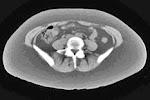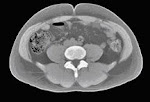Surprisingly, water also happens to be one of the keys to the mental processes behind fat-burning. Often when the sensation of hunger is felt - a neurological signal generated by the brain - the actual underlying condition can at times be dehydration. The brain only senses it needs more energy for digestion and waste metabolism. Energy can come from calories, obviously, but it can also come from water indirectly.
Water restores metabolic functions which generate energy. Simply drinking water the next time you feel those afternoon or evening hunger signals may eliminate the desire to eat - the signal may be from the brain that your liver requires energy.
Digestion and metabolism are actually the most energy-draining process in the human body. If you can ensure that the organs work at optimum efficiency, it can lead to reduced instances of “false hunger” signals as well as better fat loss via less needless calories consumed.
Water comprises about 60% of the human body’s overall mass. Muscle is over 75% water. Like protein, also a key component in muscle, ingesting more water will not directly lead to more muscle mass. However, without adequate water you cannot build lean muscle mass.
On the other hand, body fat is only 15% water. Fat is the most inactive tissue in the body until processed for fuel. One of the reasons for this is the lack of water within a fat cell. Your body is basically a bio electric machine and water is a conduit for neuroelectrical processes. Less water means less cellular activity.
It is suggested that one liter of water should be consumed in a day for every 20 Kgs of bodyweight. This may well be over the ‘eight glass per day’ rule, but takes into account the additional dehydration due to exercise, consumption of coffee and other dehydrating substances. So it is better to err on the higher side than lesser. And do remember to spread out the consumption of water throughout the day, rather than guzzling a lot at one go.
Monday, August 10, 2009
Subscribe to:
Comments (Atom)

